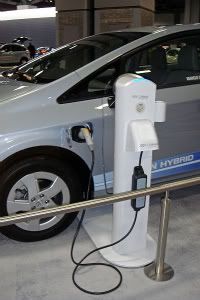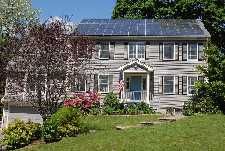10 Things You Didn’t Know about Electric Vehicles
Here’s a consumer-oriented piece from the U.S. Department of Energy: 10 Things You Didn’t Know about Electric Vehicles. Nicely done.
There are a couple of issues with EVs, however, that make this a trickier issue than the article implies:
• Even though the fuel savings versus gasoline are significant, the consumer value proposition, i.e., the cost/benefit proposition for the typical driver, while it’s steadily improving, is still not appealing. Sure, it’s good to save $1000 per year on fuel, but how compelling is that if the cost of the vehicle is $10,000 more, and limits one’s range?
This is more than a rhetorical question. Let’s look at sales numbers. (more…)









